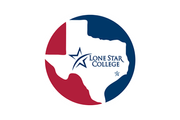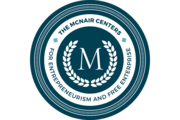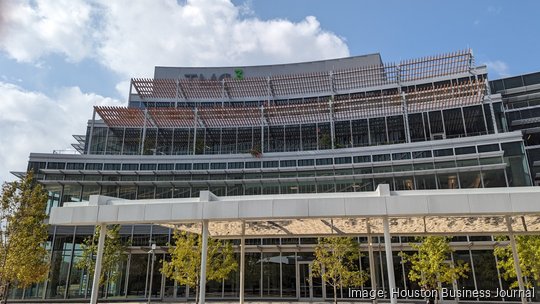
A life sciences company is upgrading its Houston presence with a milestone lease in the Texas Medical Center’s new campus.
Switzerland-founded Artidis is the first tenant for Chicago-based venture capital firm Portal Innovations, which occupies the entirety of the third floor of the TMC3 Collaborative Building on the TMC Helix Park campus. Artidis is also the first life science company to take up space in the Collaborative Building.
“The moment we saw Helix Park being built, we could imagine being here,” Marija Plodinec, CEO and co-founder of Artidis, said in an exclusive interview with the Houston Business Journal. “The concept of bringing industry, science and clinicians is unique in terms of clinical opportunities. It’s a no-brainer for us.”
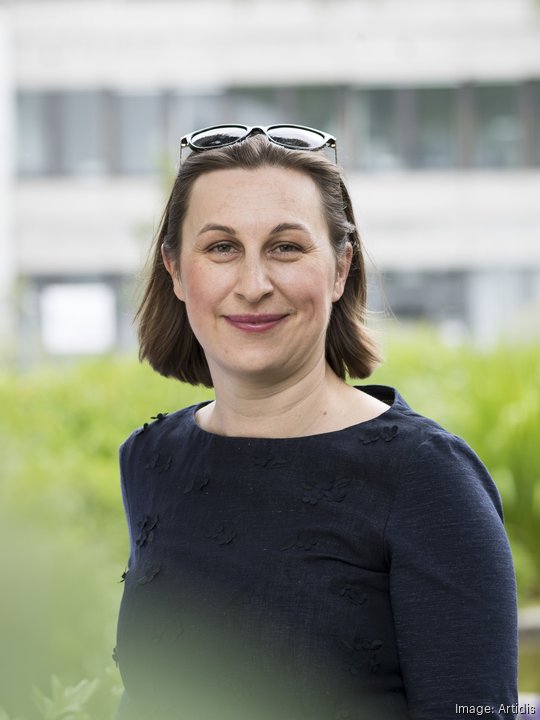
Artidis will occupy 2,000 square feet of space at the Collaborative Building. The space will include a showroom for Artidis’ technology, office space and a lab, according to Plodinec. Artidis is scheduled to move in on Sept. 1.
Artidis specializes in cancer detection and helps create personalized treatment plans for patients using nanotechnology to detect a tumor’s physical characteristics and surrounding environment. The company was spun out of Plodinec’s research at the University of Basel.
“Unfortunately, we are in a space where immunotherapy doesn’t respond for everyone. [The response rate] can be as low as 20%, and treatment costs $200,000,” Plodinec said. “We got clear feedback that even marginal improvements would be a big benefit, but we are aiming at doubling that response rate.”
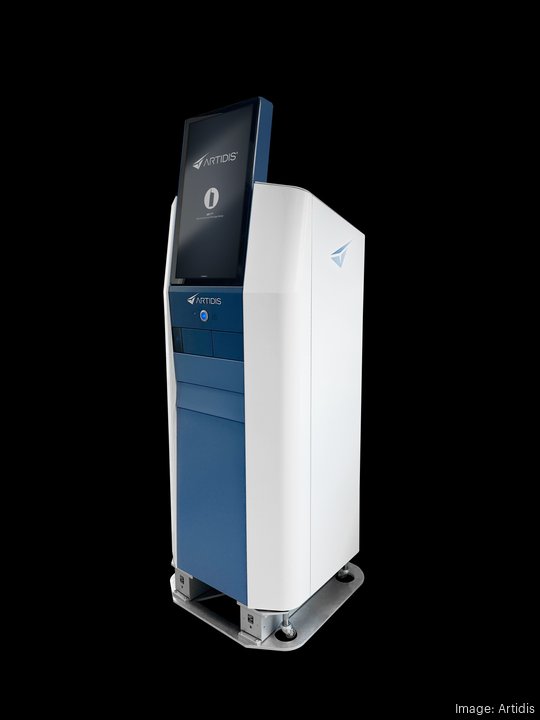
Artidis was selected as part of the TMC Innovation Institute accelerator program in August 2019 and has been located at the TMCi building at 2450 Holcombe Blvd. since 2021. The company employs nine Houston employees and 88 workers globally.
“We were proud to welcome Artidis to the TMC accelerator in 2019 and partner with them in a variety of ways as their company has evolved over the past five years,” the TMC said in an emailed statement to the HBJ. “They transitioned to our TMC Innovation Private Offices in 2021 and have been at the TMC Innovation Factory since. We are excited to see this core member of our startup community continue to mature as a company and remain part of the TMC ecosystem with their move to the TMC3 building at Helix Park.”
Monique Knighten, Houston executive director of Portal Innovations, told the Houston Business Journal that while Artidis is different than the early-stage companies the firm works with, the company made sense as a tenant due to its focus on cancer detection and its prior Houston connections.
“They’re a little bit further in the development of companies that we typically work with, but they’re still at this unique stage where they are working with these medical institutions within Houston to be able get data and to see how their tools are informative to physicians treating patients with cancer. It just really worked for us,” Knighten said.

Besides the TMC accelerator fellowship, Artidis has partnered with the University of Texas MD Anderson Cancer Center to evaluate Artidis’ technology for use in its cancer patients. The company also began a clinical trial with Baylor College of Medicine in 2023.
Artidis has finished a trial and is awaiting the Food and Drug Administration’s final approval next year. The company is targeting commercialization of its technology by 2026. Plodinec said that Artidis has raised $75 million in total capital to date and will likely continue fundraising as it awaits the FDA decision.
Helix Park leasing tenants as 1-year mark approaches
The first phase of Helix Park opened last year with the TMC3 Collaborative Building and Beacon Capital’s Dynamic One industry building, which is one of four such research buildings planned for the campus.
Last year, Portal Innovations leased about 30,000 square feet of office and lab space on the third floor of the Collaborative Building to host its own tenants. In addition to Houston, Portal Innovations has expanded into Boston and Atlanta, and Knighten said the firm envisions companies scaling up at Helix Park.
“Even though our space is limited and the expectation for everyone is that these companies will eventually grow to a point where they need to find a new home, we do maintain relationships, and one might think that’s odd because maybe there’s an element of competition,” Knighten said. “Part of Portal’s model is the interconnectivity between the various markets. If it so happens that a company cannot solely be based in Houston, they will have had an opportunity to broaden their network whether it’s in Boston, Atlanta and Chicago.”
Also in the Collaborative Building, MD Anderson Cancer Center, Texas A&M University and the University of Texas Health Science Center at Houston have over 24,000 square feet of overlapping lab and office space on the building’s highest floor.
Other Helix Park academic tenants include Baylor College of Medicine, which leased 114,000 square feet at Dynamic One in January 2023. The university is serving as Dynamic One’s anchor tenant. Houston Methodist signed a lease for 75,000 square feet in the building earlier this year.
Meanwhile, the TMC Innovation Building is still adding new tenants, with surgical startup VenoStent moving into a 10,090-square-foot space in April. VenoStent CEO Tim Boire previously told the HBJ that while Helix Park was considered as an option, the costs were too high for VenoStent at the time.
While Plodinec is excited for the growth of Helix Park, she told the HBJ that for Houston to become a player in the life sciences ecosystem, the city needs to attract more established capital for companies to grow as well as larger industry partners.
“The giants need to be here to collaborate with startups. Lonza is around, but they're more like manufacturers," Plodinec said. "You need someone like Roche, AstraZeneca, the big partners."
Sign up here for the Houston Business Journal’s free morning and afternoon daily newsletters to receive the latest business news impacting greater Houston.




